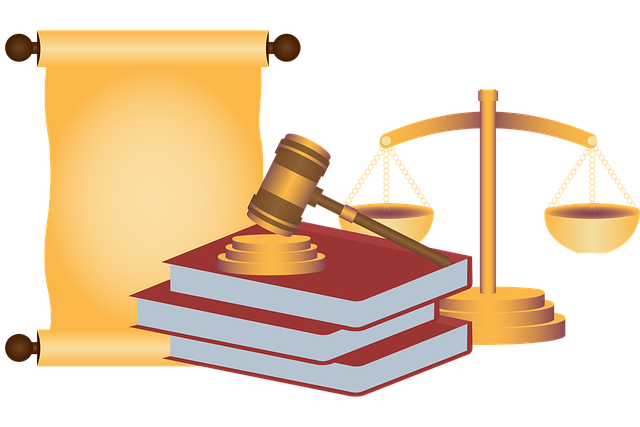Understanding entrapment defenses is crucial in criminal law, as they challenge charges by proving government inducement or persuasion that leads individuals to commit crimes they wouldn't have otherwise. By examining interactions between law enforcement and the accused, focusing on elements like inducement and predisposition, attorneys can craft effective strategies for fair outcomes. This knowledge is essential for navigating complex criminal litigation and protecting defendants' rights, especially in high-stakes cases involving prominent figures. Specialized services employing expert analysts and investigators play a vital role by uncovering subtle nuances in law enforcement conduct, scrutinizing evidence, and exposing irregularities to bolster defenses.
In the intricate landscape of criminal law, understanding entrapment defenses is paramount for ensuring justice. This article delves into the critical aspect of entrapment from a criminal law perspective, providing insights into its complexities. We explore the fundamental elements that constitute an entrapment case, shedding light on the strategies employed by defendants. Furthermore, it highlights the pivotal role of litigation support services in crafting robust entrapment defense strategies, offering a comprehensive guide for legal professionals navigating these intricate matters.
- Entrapment Defenses: A Criminal Law Perspective
- Understanding the Elements of an Entrapment Case
- The Role of Litigation Support Services in Entrapment Defense Strategies
Entrapment Defenses: A Criminal Law Perspective

Understanding Entrapment Defenses in Criminal Law
In the realm of criminal law, entrapment defenses are a critical aspect for individuals facing charges, especially in high-stakes cases. This legal strategy revolves around the concept that government agents or authorities induced a person to commit a crime they would not have otherwise undertaken. The key element lies in differentiating between legitimate investigative tactics and unduly persuasive methods that manipulate an individual’s decision-making process. When defendants can prove entrapment, it may lead to charges being dismissed or reduced, offering a glimmer of hope for achieving extraordinary results in challenging circumstances.
The defense of entrapment examines the interaction between law enforcement and the accused, focusing on factors such as inducement, persuasion, and predisposition. In respective business environments where legal battles are fierce, understanding this defense is vital for crafting robust strategies. By questioning the intent behind an investigation and its impact on the defendant’s actions, attorneys can navigate complex criminal cases, ensuring fair outcomes for their clients.
Understanding the Elements of an Entrapment Case

In the realm of criminal law, understanding entrapment defenses is crucial for both corporate and individual clients facing charges. Entrapment occurs when law enforcement officers encourage or induce a person to commit an offense they would not have otherwise attempted. To establish this defense, several key elements must be proven. These include an unreasonable or undue pressure from the police, a lack of prior intent on the part of the defendant, and a causal connection between the police conduct and the defendant’s decision to commit the crime.
An unprecedented track record across the country highlights successful entrapment defenses in various cases. By scrutinizing the motives and methods employed by law enforcement, legal professionals can uncover instances where officials crossed the line, leading to the dismissal of charges or significant reductions in sentences. This strategic approach not only ensures fairness but also protects the rights of those accused, fostering a more balanced criminal justice system.
The Role of Litigation Support Services in Entrapment Defense Strategies

In the intricate landscape of criminal law, understanding entrapment defenses is paramount for ensuring justice. Litigation support services play a pivotal role in crafting and presenting these complex defenses. By employing expert analysts and investigators, these services help uncover factual nuances that might otherwise remain hidden. They delve into the conduct of law enforcement agencies, scrutinizing their tactics to determine if they inadvertently or intentionally led an individual towards committing a crime. This meticulous process involves sifting through voluminous data, including surveillance records, communications, and witness statements, to construct a compelling narrative that supports entrapment claims.
In high-stakes cases involving prominent figures from philanthropic and political communities, the stakes are even higher. Here, litigation support services become indispensable allies, offering specialized knowledge and robust tools to navigate the labyrinthine legal complexities. Their expertise enables attorneys to challenge the admissibility of evidence, question the integrity of informants, and expose any procedural irregularities that may have compromised the rights of the accused. This strategic approach not only strengthens the defense but also ensures a fair and just outcome in cases where misunderstandings or overzealous enforcement could lead to severe repercussions.
In the intricate landscape of criminal law, understanding entrapment defenses is paramount. By delving into the elements of these cases and leveraging the assistance of specialized litigation support services, legal professionals can navigate this complex issue effectively. These services play a pivotal role in gathering and presenting evidence, shaping strategies, and ultimately ensuring fair outcomes for those facing entrapment allegations. Embracing these defense mechanisms strengthens the criminal justice system by protecting the innocent while deterring abusive policing tactics.






